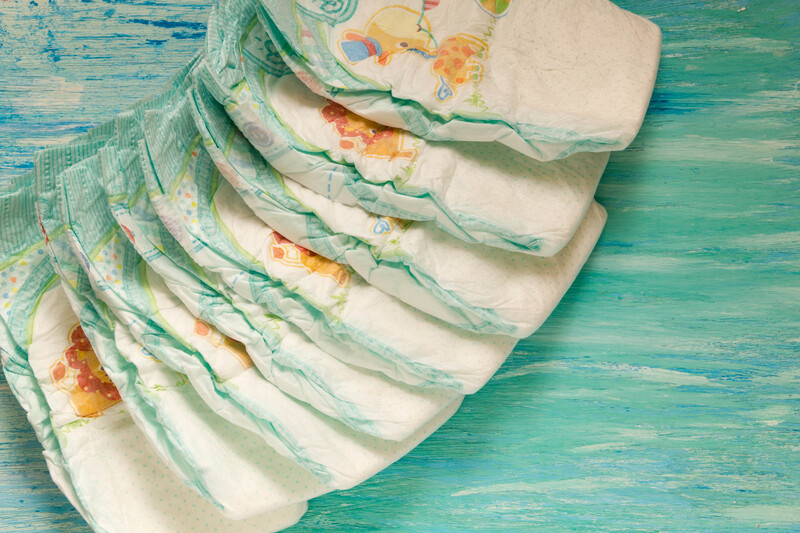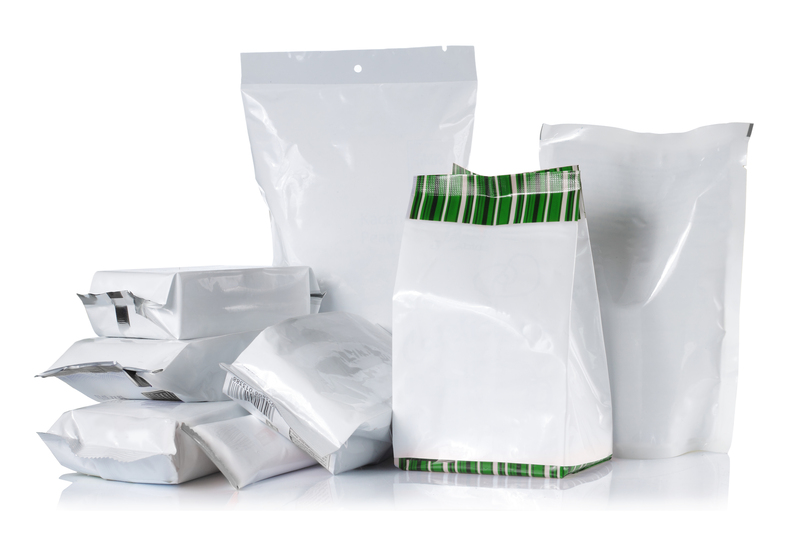Boost Your At-Home Recycling Game with These Key Insights
Is your at-home recycling routine feeling a little uninspired? Whether you're a beginner or a seasoned eco-warrior, there's always room to improve. Understanding what, how, and why we recycle can play a huge role in reducing waste, conserving resources, and contributing positively to our planet.
This comprehensive guide will provide essential insights into improving your home recycling habits. Get ready to transform your approach to recycling with powerful, actionable tips and the latest best practices!
Understanding the Importance of Effective Home Recycling
Recycling at home might seem straightforward, but the impact goes far beyond emptying your bins curbside each week. By boosting your residential recycling efforts, you help:
- Conserve natural resources like timber, water, and minerals.
- Reduce landfill waste and decrease greenhouse gas emissions.
- Save energy compared to manufacturing products from raw materials.
- Protect wildlife by reducing pollution and habitat destruction.
- Create jobs and support local recycling industries.
That's why taking the right steps to recycle smarter at home is so essential for a more sustainable future!
Global Recycling Statistics
Did you know that only about 9% of plastic waste ever produced has been recycled? Meanwhile, paper and cardboard have a recycling rate of over 60%. Maximizing what we recycle at home can shift these statistics in a positive direction.

Key Insights to Enhance Your Home Recycling Game
1. Know What Can (and Can't) Be Recycled
The golden rule for better at-home waste sorting is to educate yourself about local recycling guidelines. Not every material is recyclable everywhere, and tossing non-recyclables into the blue bin can contaminate entire batches of recyclables.
- Papers & Cardboard: Newspapers, magazines, office paper, cereal boxes (flatten boxes and remove liners).
- Glass: Bottles and jars (rinse out food or liquid, remove lids).
- Certain Plastics: Look for #1 (PETE) and #2 (HDPE) plastics, such as water bottles and milk jugs - but check your local program's accepted types.
- Aluminum & Steel Cans: Soda cans, food tins (rinse and flatten if possible).
Not accepted (in most programs): Styrofoam, plastic bags, greasy pizza boxes, food-soiled paper, batteries, electronics.
2. Rinse and Prepare Recyclables Thoroughly
Contaminants like leftover food, liquids, and grease can ruin batches of recycling. Set yourself up for success by:
- Rinsing containers and bottles before tossing them in the bin.
- Removing lids, caps, and labels if asked by your recycling provider.
- Flattening boxes to save bin and collection space.
3. Don't Bag Your Recycling
Never place recyclables in plastic bags unless instructed by your local program. Many curbside recycling systems reject bagged materials because they tangle machinery at sorting facilities. Instead, put recyclables loosely in the bin.
4. Stay Informed on Local Recycling Changes
Municipal recycling programs often update their accepted material lists. Regularly check your city or waste management website for the latest information. You can also use handy apps to help you identify recycling rules for specific items.
5. Set Up a Home Recycling Station
Boost your at-home recycling habits by making recycling simple and accessible for all family members:
- Use multiple bins for sorting paper, plastics, glass, and metals.
- Label bins clearly with words or pictures for kids and guests.
- Place bins in convenient, high-traffic areas like the kitchen or garage.
- Keep a small container for batteries or electronics that can be dropped off at special facilities.
Advanced Tips: Take Your Household Recycling Further
Composting Organic Waste
Not all organic material belongs in recycling, but composting can drastically cut down your trash. Food scraps, coffee grounds, eggshells, and yard waste are ideal for compost bins, turning what would have gone to landfill into nutrient-rich soil for your garden or plants.
Responsible Plastic Bag and Film Recycling
While most curbside programs don't accept 'soft plastics' like grocery bags, bread bags, and plastic wraps, many stores and supermarkets have special collection bins. Save these materials and drop them off to prevent them from clogging landfills and waterways.
Properly Disposing of Special Waste
- Electronics (e-waste): Laptops, mobile phones, and batteries contain hazardous elements and should be taken to designated e-waste drop-off locations.
- Lightbulbs & chemicals: Never put these in regular recycling. Research local hazardous waste disposal events or sites.
- Textiles: Old clothes can often be donated or recycled through special programs instead of being packed into landfills.
Common Recycling Mistakes and How to Avoid Them
- Wishcycling: Tossing non-recyclables into the bin in the hope they'll get recycled. *Always check guidelines instead of guessing!*
- Not rinsing containers: It may seem harmless, but dirty recyclable materials can mean an entire bin gets sent to landfill.
- Recycling greasy pizza boxes: Only clean, dry paper and cardboard are acceptable. Greasy boxes belong in the trash or compost if the non-greasy parts can be separated.
- Ignorance of program changes: Programs evolve; stay updated for best results.
How to Engage the Whole Household in Recycling
Make Recycling a Family Activity
Engaging everyone under your roof will supercharge your household's eco-impact. Try these initiatives:
- Assign recycling-related chores to different family members.
- Use fun charts or reward systems to encourage consistent recycling habits among kids.
- Lead discussions about sustainability and why recycling matters.
- Take a field trip to your local recycling center to see the process in action.
Keep It Visible and Accessible
Out of sight usually means out of mind. Keep recycling bins in visible, convenient spots to prompt action - not tucked behind closed doors or in a far garage corner.
The Environmental Benefits of Improved Home Recycling Habits
There's a tremendous environmental upshot to enhancing your domestic recycling routine:
- Reduced Landfill Space: Less waste means less land and resources are used to manage trash.
- Energy Conservation: Producing goods from recycled materials generally uses far less energy than starting from virgin resources.
- Lower Carbon Footprint: Diverting materials from landfill helps cut greenhouse gas emissions, including methane from decomposing organic waste.
- Decreased Pollution: Proper recycling prevents toxins and plastics from ending up in waterways, soil, and wildlife systems.
FAQs: Home Recycling Mastery
What happens if I recycle the wrong item?
Non-recyclable items can contaminate whole batches, causing the entire collection to be sent to landfill. Always check your local rules before adding something new to your bin.
Are pizza boxes really not recyclable?
Only clean and dry parts of pizza boxes can be recycled. Greasy or food-soiled parts should go in the trash or compost.
How can I recycle plastic bags at home?
Curbside programs typically don't accept plastic bags. Save them and drop them off at supermarket collection points for proper recycling.
Is it true that recycling needs to be perfectly clean?
Rinsing is essential, but perfection isn't required. Remove most food residue and liquids to keep recycling loads usable.
Why separate materials (paper, plastic, glass) at home?
Separation prevents contamination, increases recovery rates, and helps recycling centers process materials more efficiently.

Conclusion: Empower Your Home to Make a Difference
Every effort counts. By reinventing your at-home recycling habits and keeping up with the latest insights, you can play a major role in protecting our environment.
Start today by educating yourself, setting up a smarter recycling station, getting the whole household involved, and being mindful of what goes into your bin. Remember -- the ripple effect of improved residential recycling spreads throughout your community and beyond.
Boost your at-home recycling game and become a catalyst for sustainability, one bin at a time!
Quick Checklist: Supercharge Your Home Recycling Game
- Review local recycling rules regularly.
- Rinse and separate recyclables before binning.
- Avoid bagging recycling unless told otherwise.
- Compost your organic waste.
- Take plastics bags and films to drop-off sites.
- Dispose of electronics and batteries responsibly.
- Engage your whole household in the process.
- Stay curious and informed about new recycling innovations.
For more expert tips and in-depth guides, bookmark this page and visit regularly for updates. Together, we can make sustainable living second nature.

